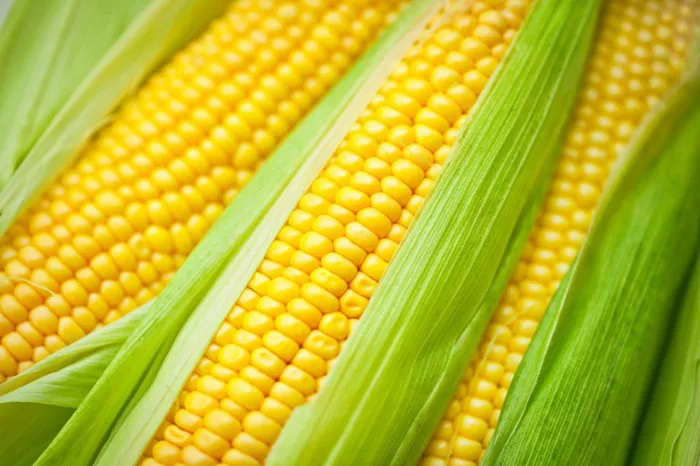Corn, a staple crop with a rich history spanning thousands of years, serves as a vital source of nutrition and sustenance for populations around the world. Beyond its carbohydrates and essential nutrients, corn also contains proteins that contribute to its nutritional profile and culinary versatility. In this article, we delve into the primary protein found in corn, known as zein, exploring its characteristics, applications, and significance in various industries.
Corn Protein
Corn as a Protein Source
While corn is commonly associated with carbohydrates due to its high starch content, it also contains proteins that contribute to its nutritional value. Corn protein plays a crucial role in plant growth and development and serves as a source of essential amino acids for humans and animals.
Protein Composition of Corn
Corn protein is composed of various types of proteins, including storage proteins, structural proteins, and enzymes. Among these, zein stands out as the most abundant and commercially significant protein in corn.
Understanding Zein
What is Zein?
Zein is a prolamin protein found in the endosperm of corn kernels. It accounts for approximately 50-70% of the total protein content in corn and is known for its unique properties, including solubility in alcohol and resistance to water.
Characteristics of Zein
Solubility: Zein is soluble in alcohol, making it suitable for various industrial applications, including the production of coatings, adhesives, and films.
Hydrophobicity: Zein is hydrophobic, meaning it repels water. This characteristic contributes to its stability and resistance to moisture, making it suitable for use in food packaging and pharmaceutical formulations.
Biodegradability: Zein is biodegradable, making it an environmentally friendly alternative to synthetic materials in certain applications.
Applications of Zein
Food and Beverage Industry
1. Edible Coatings
Zein is used as a coating agent in food products to improve appearance, texture, and shelf life. It forms a thin, protective layer on the surface of foods, helping retain moisture and prevent oxidation.
2. Flavor Encapsulation
Zein encapsulates flavors and aromas, allowing for controlled release and prolonged shelf stability. It is commonly used in the production of flavored beverages, confectionery, and snack foods.
3. Nutritional Supplements
Zein is utilized in the formulation of nutritional supplements, including protein powders and meal replacement shakes, due to its high protein content and digestibility.
Pharmaceutical Industry
1. Controlled Release Drug Delivery
Zein is used as a carrier material for controlled release drug delivery systems. Its biocompatibility, biodegradability, and film-forming properties make it suitable for encapsulating and delivering pharmaceutical compounds.
2. Biodegradable Packaging
Zein-based films and coatings are used in pharmaceutical packaging to protect drugs from moisture, oxygen, and light degradation. These biodegradable materials offer an eco-friendly alternative to traditional packaging materials.
Industrial Applications
1. Adhesives and Binders
Zein is used as a binder in the production of adhesives, coatings, and inks due to its adhesive properties and compatibility with other materials.
2. Bioplastics
Zein-based bioplastics are being explored as sustainable alternatives to traditional petroleum-based plastics. These biodegradable materials have applications in packaging, disposable utensils, and single-use items.
Nutritional Profile of Corn Protein
Amino Acid Composition
Corn protein contains all nine essential amino acids, making it a complete protein source for humans. However, it is lower in lysine, an essential amino acid, compared to animal-based proteins such as meat, eggs, and dairy.
Protein Digestibility
The digestibility of corn protein varies depending on factors such as processing methods and food matrix. Heat processing, such as cooking and extrusion, can improve the digestibility and bioavailability of corn protein.
Health Benefits
While corn protein offers essential amino acids and nutrients, its health benefits are influenced by factors such as overall diet, lifestyle, and individual health status. Including a variety of protein sources in the diet is recommended to ensure adequate nutrition.
Challenges and Considerations
Allergenic Potential
While rare, allergic reactions to corn protein, including zein, have been reported. Individuals with known corn allergies should avoid products containing corn-derived ingredients.
Genetic Modification
The widespread cultivation of genetically modified (GM) corn varieties raises concerns about the safety and environmental impact of corn protein. Regulatory oversight and labeling requirements help ensure the safety and transparency of GM crops and products.
Environmental Impact
The intensive cultivation of corn for food, feed, and industrial purposes has environmental implications, including land use, water usage, and pesticide use. Sustainable agricultural practices and technological innovations are being explored to mitigate these impacts.
Future Perspectives
Research and Innovation
Ongoing research into the properties and applications of corn protein, particularly zein, holds promise for the development of novel materials and technologies. Advances in biotechnology, materials science, and food technology are driving innovation in this field.
Sustainability and Ethics
As consumer demand for sustainable and ethically sourced products grows, there is increasing interest in plant-based proteins such as zein. Companies are exploring environmentally friendly alternatives to conventional materials, driven by consumer preferences and regulatory requirements.
Conclusion
Zein, the primary protein found in corn, offers a range of unique properties and applications across various industries, including food, pharmaceuticals, and manufacturing. Its solubility in alcohol, resistance to water, and biodegradability make it a versatile ingredient in coatings, encapsulation systems, adhesives, and bioplastics. While corn protein provides essential amino acids and nutrients, considerations regarding allergenic potential, genetic modification, and environmental impact warrant attention. Ongoing research and innovation in the field of corn protein offer promising opportunities for sustainable and ethical solutions in diverse applications. By understanding the characteristics and implications of corn protein, stakeholders can make informed decisions to promote health, sustainability, and technological advancement.
[inline_related_posts title=”You Might Be Interested In” title_align=”left” style=”list” number=”6″ align=”none” ids=”8877,8724,8721″ by=”categories” orderby=”rand” order=”DESC” hide_thumb=”no” thumb_right=”no” views=”no” date=”yes” grid_columns=”2″ post_type=”” tax=””]
































